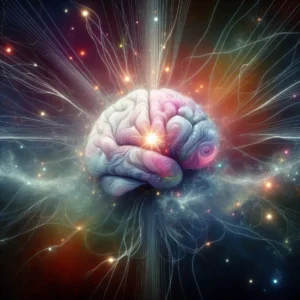Hello, relationship seekers!
Today, we’re diving deep into an important question about relationships: “What chemical factors ignite unconscious desires in people drawn to forbidden relationships like affairs?”
The Direct Answer
The unconscious desires that lead individuals towards forbidden relationships such as affairs can be traced back to a cocktail of chemicals released in our brains. Primarily, these include dopamine, the ‘pleasure chemical’; adrenaline, which fuels the excitement and novelty; and oxytocin and vasopressin, which are associated with bonding and attachment. These chemicals create a potent mix that can make forbidden relationships seem enticing, exciting, and emotionally intense.
Now, let’s explore the extensive evidence and details that support this answer:
1. The Role of Dopamine in Forbidden Relationships
Dopamine, often referred to as the ‘pleasure chemical’, plays a significant role in the appeal of forbidden relationships. It is responsible for the feelings of euphoria and intense pleasure that often accompany the start of a new relationship.
A. Dopamine and Novelty
– Expert Perspectives: Dr. Helen Fisher, a biological anthropologist, has stated that dopamine is released when we do something novel or exciting. The secrecy and thrill of a forbidden relationship can trigger this release, making the affair seem more appealing.
– Psychological Research: Studies have shown that dopamine levels spike during the early stages of a relationship, leading to feelings of happiness and satisfaction. This can make the initial stages of an affair feel exhilarating.
– Real-World Examples: People often report feeling alive or excited during the early stages of an affair, a feeling that can be attributed to increased dopamine levels.
B. The Downside of Dopamine
– Historical Context: Throughout history, the pursuit of dopamine-induced pleasure has led individuals to engage in risky behavior, including forbidden relationships.
– Common Challenges: Dopamine levels drop as a relationship becomes more familiar and comfortable, which can make an existing relationship seem less appealing compared to the thrill of a new liaison.
– Practical Applications: Understanding the role of dopamine can help individuals recognize when they are being swayed by these chemical signals, rather than genuine emotional or relational compatibility.
2. Adrenaline: The Excitement Fuel
Adrenaline, another key player, is often released in response to stressful or exciting situations – like forbidden relationships.
A. Adrenaline and Risk Taking
1. Adrenaline and Excitement: The secrecy and risk involved in an affair can lead to adrenaline rushes, which can be mistaken for romantic feelings.
2. Adrenaline and Attachment: Increased adrenaline can also enhance memory and attention, making the forbidden person seem more attractive and desirable.
3. Adrenaline and Reward: The adrenaline-fueled excitement of a secret relationship can make the involvement feel rewarding, reinforcing the behavior.
B. Adrenaline’s Role in Affair Continuation
Adrenaline not only kickstarts affairs but can also maintain them. The constant secrecy and threat of discovery can keep adrenaline levels high, perpetuating the cycle.
C. Practical Implications
Understanding the role of adrenaline can help individuals recognize and manage their responses to stressful or exciting situations, potentially preventing the initiation or continuation of an affair.
3. Oxytocin and Vasopressin: The Bonding Chemicals
Oxytocin and vasopressin, hormones associated with bonding and attachment, can also play a role in the formation of forbidden relationships.
A. Oxytocin, Vasopressin and Attachment
– Oxytocin: Often referred to as the ‘love hormone’, oxytocin is released during physical touch and intimacy, fostering feelings of connection and attachment.
– Vasopressin: Vasopressin plays a role in long-term bonding and has been linked to monogamy in certain animal species.
– Involvement in Affairs: During an affair, these hormones can create a feeling of emotional intimacy and closeness, further complicating the situation.
B. The Double-Edged Sword of Oxytocin and Vasopressin
While these hormones can promote bonding, they can also lead individuals to form attachments to people outside of their primary relationships, driving them towards affairs.
C. Future Implications
With further research, we may better understand how these hormones influence our behavior and how we can manage their effects to foster healthier relationships.
4. Additional Context and Considerations
While these chemicals can influence our behavior, it’s crucial to remember that they do not control it. External factors, personal values, emotional state, and the quality of existing relationships also play a significant role.
Conclusion: The Definitive Answer
Based on all the evidence we’ve examined:
– Dopamine: This ‘pleasure chemical’ can make forbidden relationships seem exciting and pleasurable, especially during the early stages.
– Adrenaline: The excitement and risk associated with forbidden relationships can lead to adrenaline rushes, heightening the perceived attraction and reward.
– Oxytocin and Vasopressin: These hormones can foster feelings of attachment and bonding, potentially leading individuals to form attachments outside of their primary relationships.
Understanding these chemical influences can offer valuable insight into why individuals may be drawn to forbidden relationships. However, it’s essential to remember that these chemicals do not excuse or justify such behavior. By understanding these influences, we can better navigate our relationships and make choices that align with our values and commitments.
In the context of modern relationships, this understanding can help individuals recognize when their feelings may be influenced by these potent chemical cocktails. With this knowledge, they can better manage these feelings, make healthier relationship choices, and work towards building stronger, more fulfilling relationships.



